19 Examples of Pronouns
A pronoun is a word or phrase that can substitute for another word or phrase. Pronouns are used to avoid repetition and to make writing more concise and clear.
For example, in the sentence “The girl went to the park and played with her friends,” the word “her” is a pronoun that replaces the noun “girl.”
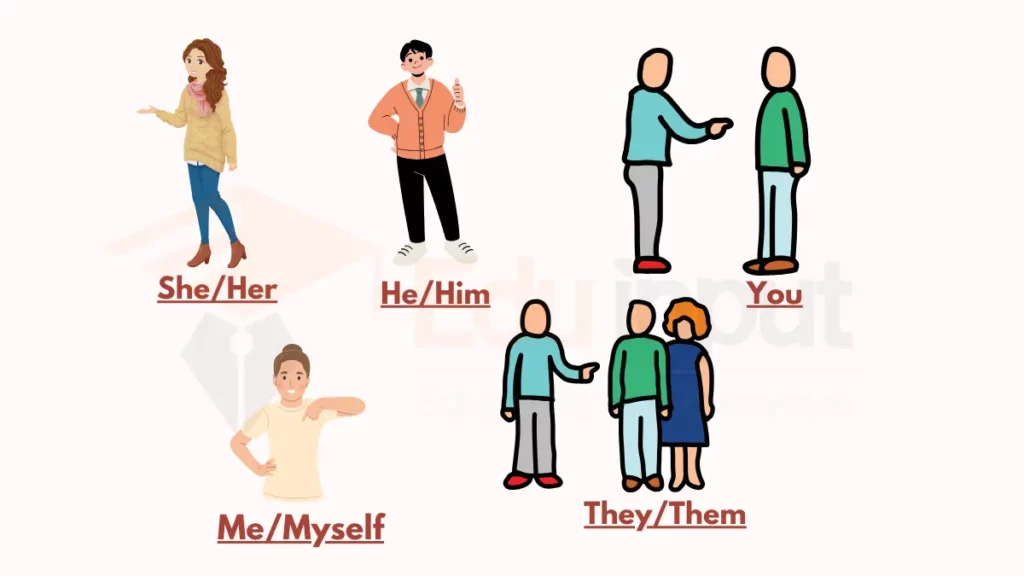
Examples of Pronouns
Here are Examples of Pronouns and their usage:
1: I
“I” is a pronoun that you use when talking about yourself.
Usage
- I like to play with my friends.
- I have a red bike.
- I’m going to the park.
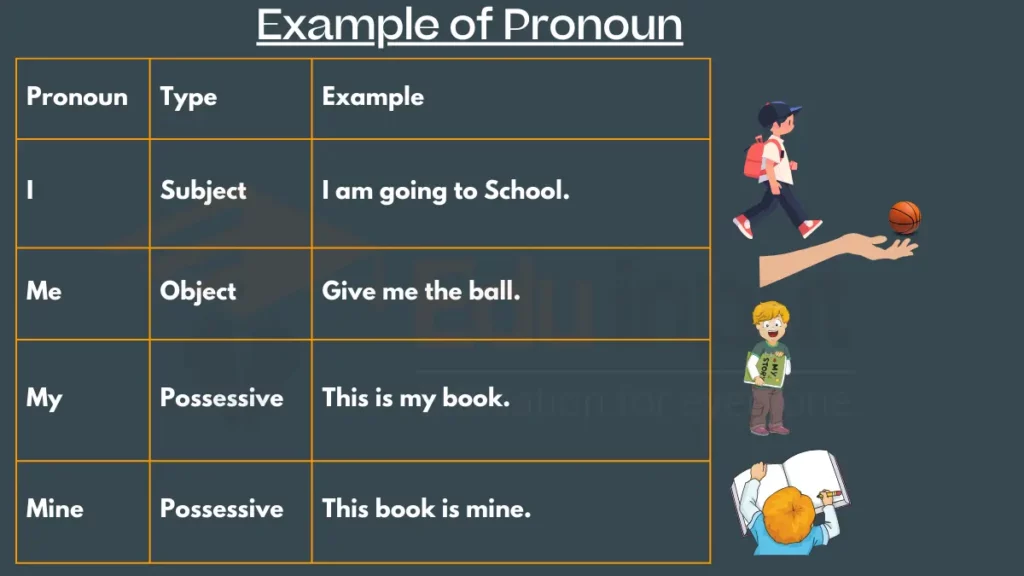
2: You
“You” is a pronoun that you use when talking to someone or referring to another person.
Usage
- You are my best friend.
- Can you help me with my homework?
- You have a nice smile.
3: He
“He” is a pronoun used to talk about a boy or a man.
Usage
- He is wearing a blue shirt.
- He likes to play soccer.
- He is my older brother.
4: She
“She” is a pronoun used to talk about a girl or a woman.
Usage
- She has a pretty dress.
- She enjoys drawing pictures.
- She is my little sister.
5: It
“It” is a pronoun used when talking about things or animals without specifying gender.
Usage
- It is a sunny day.
- The cat is cute; it has a fluffy tail.
- Look at that bird; it can fly high.
6: We
“We” is a pronoun used when talking about yourself and one or more other people.
Usage
- We are going to the park.
- We all like ice cream.
- We had a great time at the party.
7: They
“They” is a pronoun used when talking about a group of people or things.
Usage
- They are my friends from school.
- Look at those birds; they are flying in the sky.
- They have different colors of flowers in their garden.
8: Me
“Me” is a pronoun that refers to yourself when you are the object of an action or feeling.
Usage
- She gave the book to me.
- Can you see me waving my hand?
- Me, my sister, and my brother played together.
9: You
“You” is a pronoun that you use when talking to someone or referring to another person.
Usage
- You are my best friend.
- Can you help me with my homework?
- You have a nice smile.
10: Him
“Him” is a pronoun used when talking about a boy or a man.
Usage
- I saw him at the store.
- I gave him a gift.
- He is sitting next to him.
11: Her
“Her” is a pronoun used when talking about a girl or a woman.
Usage
- I like her dress.
- I played with her dog.
- Her mom made cookies for us.
12: It
“It” is a pronoun used when talking about things or animals without specifying gender.
Usage
- Look at the rainbow; it is so colorful.
- The cat is napping; it looks comfy.
- The book is on the table; it’s interesting.
13: Us
“Us” is a pronoun that refers to yourself and one or more other people when you are the object of an action.
Usage
- They invited us to their party.
- Can you take a picture of us?
- Us kids like to play at the park.
14: Them
“Them” is a pronoun used when talking about a group of people or things.
Usage
- I saw them at the park.
- Let’s join them for a game.
- They brought snacks with them.
15: Myself
“Myself” is a reflexive pronoun that refers to yourself as the subject of an action.
Usage
- I can tie my shoes myself.
- I need to remind myself to finish my homework.
- I made this drawing all by myself.
16: Yourself
“Yourself” is a reflexive pronoun that refers to you as the subject of an action.
Usage
- Did you make this sandwich yourself?
- You can do it yourself; I believe in you.
- Take care of yourself when you’re playing outside.
17: Himself
“Himself” is a reflexive pronoun used when a boy or a man is the subject of an action.
Usage
- He made the bed himself this morning.
- He can tie his shoelaces himself now.
- He hurt himself while playing.
18: Herself
“Herself” is a reflexive pronoun used when a girl or a woman is the subject of an action.
Usage
- She dressed herself for the party.
- She enjoyed the ice cream all by herself.
- She read the book to herself.
19: Itself
“Itself” is a reflexive pronoun used when talking about things or animals without specifying gender.
Usage
- The clock chimes by itself.
- The cat groomed itself after getting wet.
- The toy moved on its own; it must be magic.

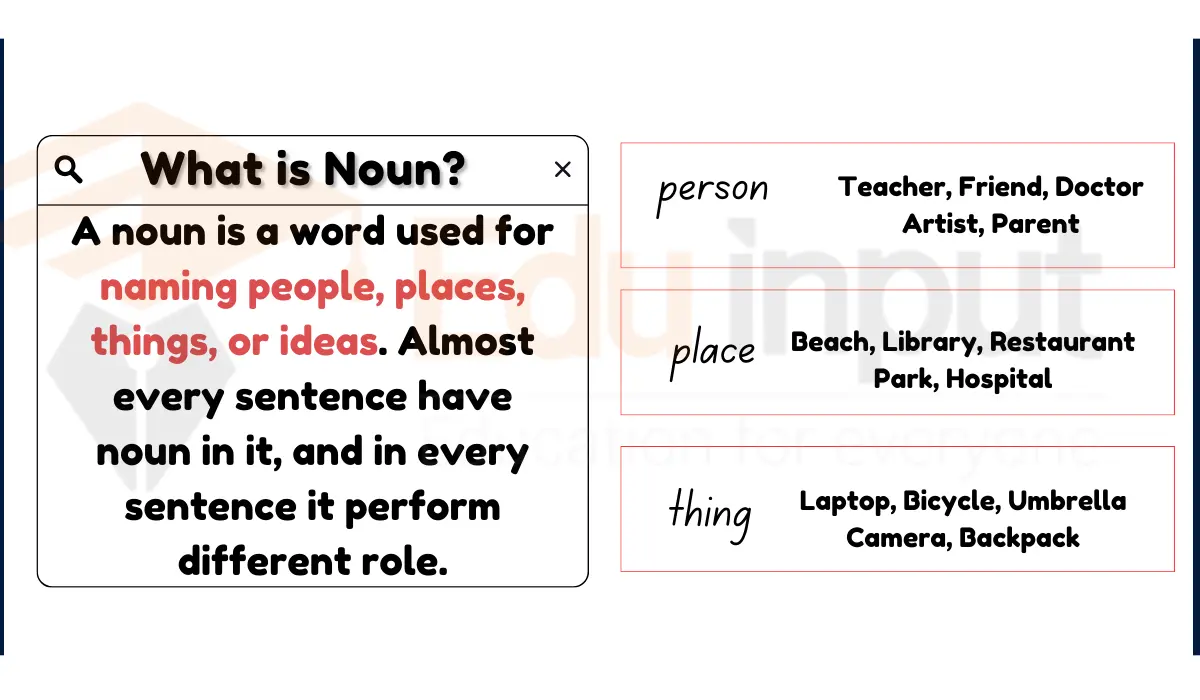
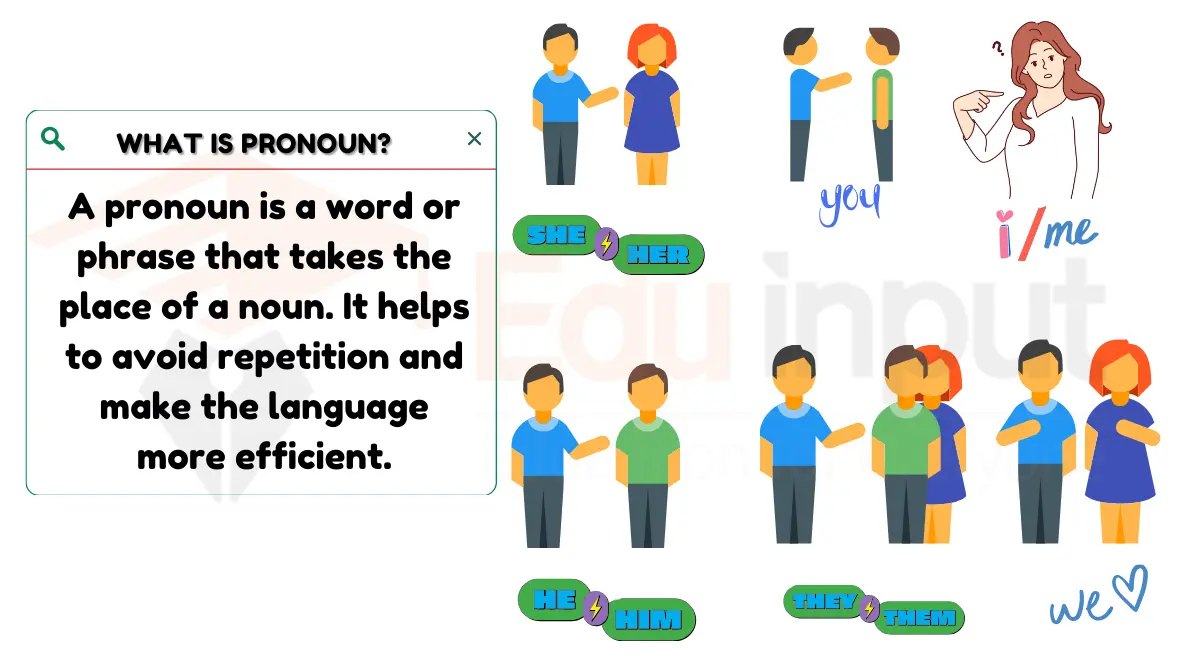
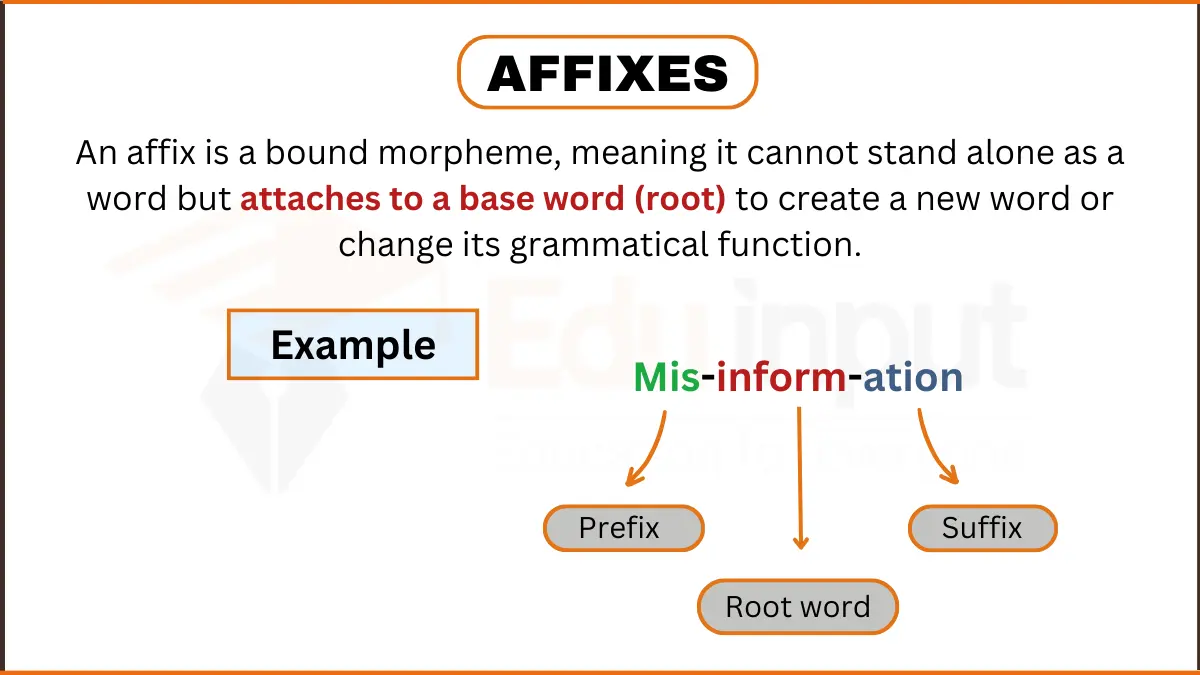



Leave a Reply